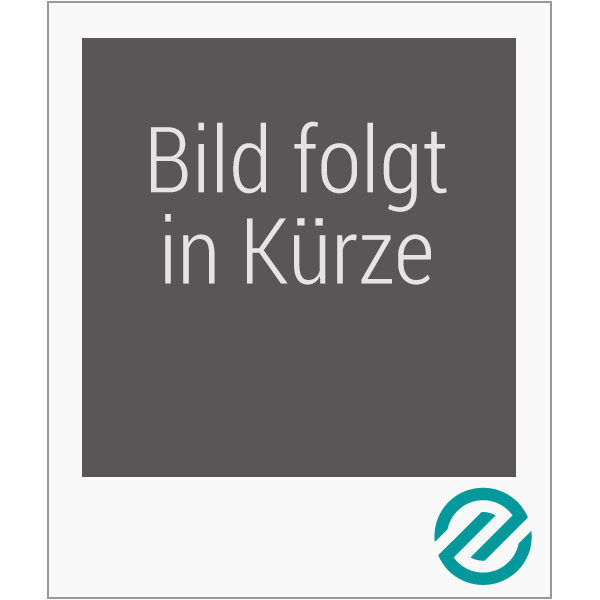Nicht lieferbar

Foreign Capital and Economic Transformation:
Risks and Benefits of Free Capital Flows
Versandkostenfrei!
Nicht lieferbar
What experiences have Central and Eastern European reform countries had with capital market integration and the liberalization of capital flows?The advanced transition economies in Central and Eastern Europe abolished most restrictions to the free flow of capital. Subsequently, they have been able to attract quite substantial amounts of foreign capital. At the same time, the recent international financial crises have heightened concerns about a speedy liberalization of capital flows, and controls on short-term capital flows are frequently being advocated. The authors of this study trace the ex...
What experiences have Central and Eastern European reform countries had with capital market integration and the liberalization of capital flows?
The advanced transition economies in Central and Eastern Europe abolished most restrictions to the free flow of capital. Subsequently, they have been able to attract quite substantial amounts of foreign capital. At the same time, the recent international financial crises have heightened concerns about a speedy liberalization of capital flows, and controls on short-term capital flows are frequently being advocated. The authors of this study trace the experience which the four reform countries, the Czech Republic, Estonia, Hungary, and Poland, have had with capital market integration.
Their main result is that domestic policies can have a substantial impact on the structure of capital flows and on the ability of emerging markets such as the transition economies to deal with adverse external shocks. Taxing capital flows cannot serve as a substitute for prudent policies. The available evidence rather suggests that the imposition of capital controls itself can be a cause of fluctuations of exchange rates and that controls on cross-border capital flows are difficult to enforce.
Ausländisches Kapital und wirtschaftliche Transformation: Risiken und Vorteile freier Kapitalströme. Von Claudia M. Buch, Ralph P. Heinrich, Christian Pierdzioch.
Die bereits weit in ihren Reformen vorangeschrittenen Transformationsstaaten Mittel- und Osteuropas haben sich in den vergangenen Jahren weitgehend für ausländisches Kapital geöffnet. Sie haben in erheblichem Umfang ausländisches Kapital anziehen und so einen Teil ihres durch die Transformation obsolet gewordenen Kapitalstocks ersetzen können. Gleichzeitig haben aber auch die jüngsten internationalen Finanzkrisen Befürchtungen genährt, eine schnelle Liberalisierung des Kapitalverkehrs könne zu große Risiken bergen, und Kontrollen auf kurzfristige Kapitalströme werden immer häufiger befürwortet.
Die Autoren dieser Studie zeigen die Erfahrungen Estlands, Polens, der Tschechischen Republik und Ungarns mit der Integration in die internationalen Kapitalmärkte. Es wird deutlich, daß die heimische Wirtschaftspolitik einen wichtigen Einfluß auf die Struktur der Kapitalströme hat und das Risiko einer Zahlungsbilanzkrise erheblich mildern kann. Steuern auf Kapitalströme können eine konsistente Wirtschaftspolitik nicht ersetzen. Vielmehr deuten die Ergebnisse darauf hin, daß Kapitalverkehrskontrollen wenig effektiv sind und außenwirtschaftliche Störungen sogar noch verstärken können.
Claudia M. Buch studied economics in Bonn; since 1992 research associate at the iel Institute of World Economics; 1996 Doctor Scientarium Politicarum.
Ralph P. Heinrich studied economics in Saarbrücken; since 1991 research associate at the Kiel Institute of World Economics.
Christian Pierdzioch studied economics in Essen; since 1997 research associate at the Kiel Institute of World Economics.
Main audience: Students and scholars of economics; corresponding institutes and libraries.
The advanced transition economies in Central and Eastern Europe abolished most restrictions to the free flow of capital. Subsequently, they have been able to attract quite substantial amounts of foreign capital. At the same time, the recent international financial crises have heightened concerns about a speedy liberalization of capital flows, and controls on short-term capital flows are frequently being advocated. The authors of this study trace the experience which the four reform countries, the Czech Republic, Estonia, Hungary, and Poland, have had with capital market integration.
Their main result is that domestic policies can have a substantial impact on the structure of capital flows and on the ability of emerging markets such as the transition economies to deal with adverse external shocks. Taxing capital flows cannot serve as a substitute for prudent policies. The available evidence rather suggests that the imposition of capital controls itself can be a cause of fluctuations of exchange rates and that controls on cross-border capital flows are difficult to enforce.
Ausländisches Kapital und wirtschaftliche Transformation: Risiken und Vorteile freier Kapitalströme. Von Claudia M. Buch, Ralph P. Heinrich, Christian Pierdzioch.
Die bereits weit in ihren Reformen vorangeschrittenen Transformationsstaaten Mittel- und Osteuropas haben sich in den vergangenen Jahren weitgehend für ausländisches Kapital geöffnet. Sie haben in erheblichem Umfang ausländisches Kapital anziehen und so einen Teil ihres durch die Transformation obsolet gewordenen Kapitalstocks ersetzen können. Gleichzeitig haben aber auch die jüngsten internationalen Finanzkrisen Befürchtungen genährt, eine schnelle Liberalisierung des Kapitalverkehrs könne zu große Risiken bergen, und Kontrollen auf kurzfristige Kapitalströme werden immer häufiger befürwortet.
Die Autoren dieser Studie zeigen die Erfahrungen Estlands, Polens, der Tschechischen Republik und Ungarns mit der Integration in die internationalen Kapitalmärkte. Es wird deutlich, daß die heimische Wirtschaftspolitik einen wichtigen Einfluß auf die Struktur der Kapitalströme hat und das Risiko einer Zahlungsbilanzkrise erheblich mildern kann. Steuern auf Kapitalströme können eine konsistente Wirtschaftspolitik nicht ersetzen. Vielmehr deuten die Ergebnisse darauf hin, daß Kapitalverkehrskontrollen wenig effektiv sind und außenwirtschaftliche Störungen sogar noch verstärken können.
Claudia M. Buch studied economics in Bonn; since 1992 research associate at the iel Institute of World Economics; 1996 Doctor Scientarium Politicarum.
Ralph P. Heinrich studied economics in Saarbrücken; since 1991 research associate at the Kiel Institute of World Economics.
Christian Pierdzioch studied economics in Essen; since 1997 research associate at the Kiel Institute of World Economics.
Main audience: Students and scholars of economics; corresponding institutes and libraries.



